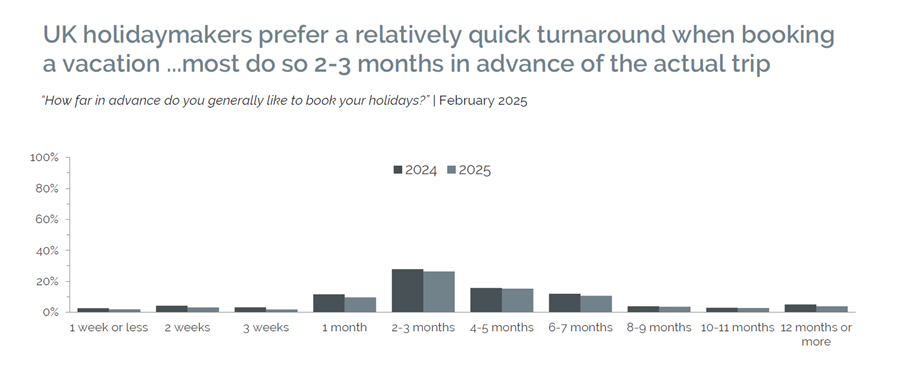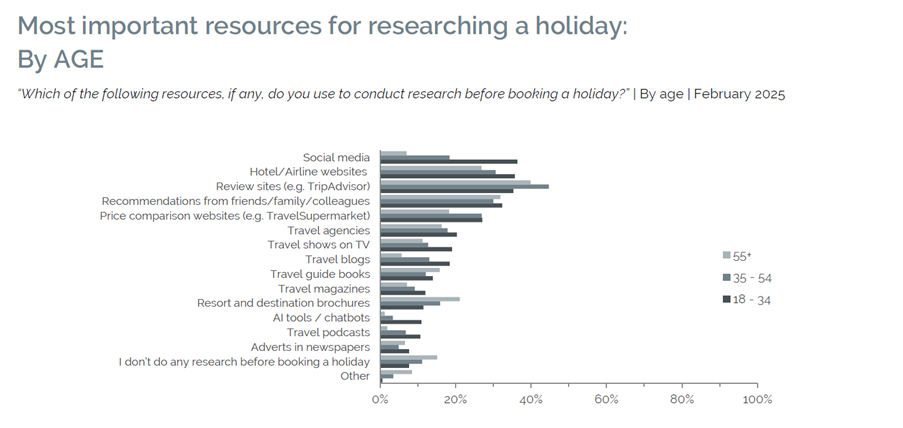Holiday planning
When reviewing the full base of 2,000 respondents, almost 80% of the data pool agree or strongly agree they have already taken or plan to take a holiday in 2025, of this over 40% plan to travel abroad, with over 30% choosing domestic UK as their preferred destination. Interestingly 30% have already booked their holiday for next year, and 10% have already been on holiday within the first 2 months of the year. 8% of respondents are planning on cutting down on their travel plans in 2025.
Peak booking months
Bookings for domestic holidays happen throughout the year, although the strongest months for bookings are March, April and May, with a dip in June. The lowest months for bookings are November and December. These holiday breaks will typically be taken throughout the year with a focus on April through to August, which is somewhat expected given the unpredictable nature of the great British weather.
In contrast, overseas holidays are booked in a steady flow from February through to September, with a dip in October, November and December. These holidays are generally taken from April through to September, with June and September peaking for overseas holidays.
Advance booking period
Almost 25% of all bookings are made 2-3 months in advance of the holiday, with just over 10% of people booking 4-5 months in advance and just under 10% of people doing so 6-7 months in advance. When reviewing this data by generation it’s clear that the generation that likes to book further in advance than any other is Generation X. This Generation books 18 weeks in advance of the holiday, with Millennials and Baby Boomers book just over 15 weeks in advance. Gen Z are the generation who have the shortest advance booking period at just under 15 weeks.






